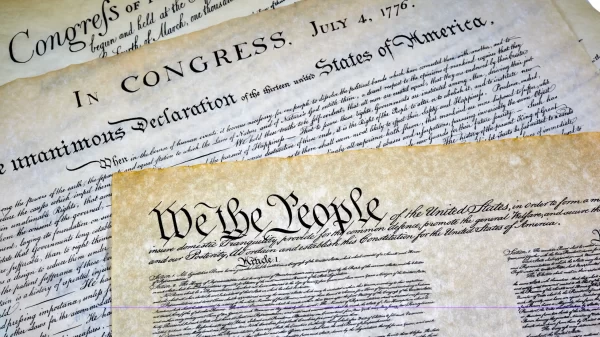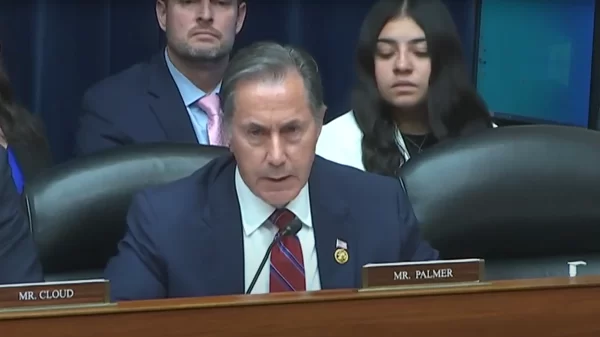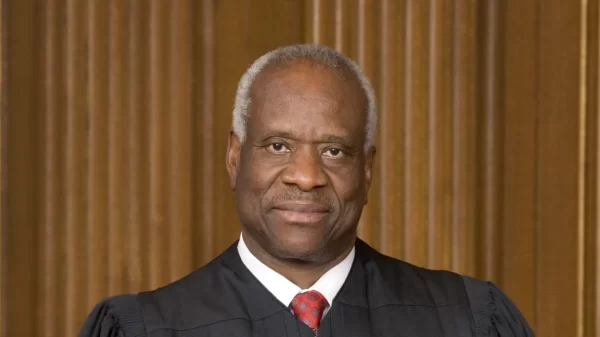A coalition of civil rights and faith groups filed a pair of federal lawsuits Monday, which challenge the newly drawn state legislative and congressional districts passed during the last special session in Montgomery earlier this month.
In a statement from the groups made Monday, the coalition cited Alabama’s “sordid history of its white majority using racial discrimination to maintain power,” and claimed the new districts deny Black residents equal opportunity to participate in the legislative process and elect candidates of their choice.
“Both the congressional and state legislative maps result from racial gerrymanders that intentionally pack and crack Black communities in the state,” the group wrote. “Which denies such communities equal protection of the laws.”
The Greater Birmingham Ministries, Alabama State Conference of the NAACP, and several individuals represented by the American Civil Liberties Union, ACLU of Alabama, NAACP Legal Defense and Educational Fund Inc., Southern Poverty Law Center, Hogan Lovells LLP, and the legal firm Wiggins, Childs, Pantazis, Fisher & Goldfarb, are plaintiffs in the federal lawsuit.
The two lawsuits request a federal court halt the implementation of the new state and congressional districts. The two lawsuits are Thomas v. Merrill and Milligan v. Merrill.
“The Legislature had opportunities to consult with experts to ensure their maps were constitutional, but instead they continued on the path that has led to decades of diluting Black voting power,” said JaTaune Bosby, executive director of the ACLU of Alabama in a statement made Monday. “Alabamians deserve better from our elected officials, but those representatives aren’t letting us have a choice, so once again, we’re fighting back in the courts to protect the rights for all.”
A previous federal lawsuit, which alleged similar dilutions of Black voting strength in Alabama’s newly drawn U.S congressional districts, was filed by prominent Democratic attorney and founder of Democracy Docket Marc Elias, directly after Governor Kay Ivey signed off on the new maps Nov. 4.
Prior to the first legislative special session on prison construction and reform, Senate Minority Leader Bobby Singleton, D-Montgomery, and State Sen. Rodger Smitherman, D-Birmingham, filed a federal lawsuit to force the state to create a second majority-minority congressional district.
“These new maps weaponize race to undermine the political power of communities of color in Alabama,” said Davin Rosborough, senior staff attorney from the ACLU’s Voting Rights Project. “These maps violate the Constitution and run contrary to basic principles of fairness and representative democracy.”
The special session on redistricting produced voting districts expected to preserve Republican majorities in the Alabama Statehouse and congressional delegation. Several attempts made by Democrats to substitute the congressional districts with whole-county lines and a swing district in the Alabama 6th were thwarted by stalwart Republicans who maintained the original lines proposed for congressional districts through the legislative process.
“It is crucial that Black Alabamians have the opportunity to elect government officials we believe will best serve us,” said Benard Simelton, president of the Alabama State Conference of the NAACP. “Although no longer controlled by Section 5 of the Voting Rights Act, Alabama is still required to provide Black Alabamians that opportunity — these maps attempting to rob our state of its diversity notwithstanding. We will continue this fight for our dignity and political voice, as we long have, in the courts.”















































